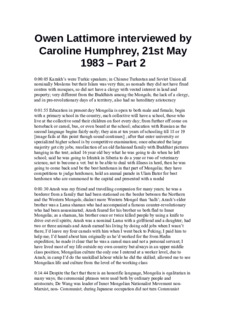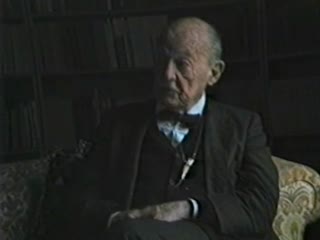Owen Lattimore collection
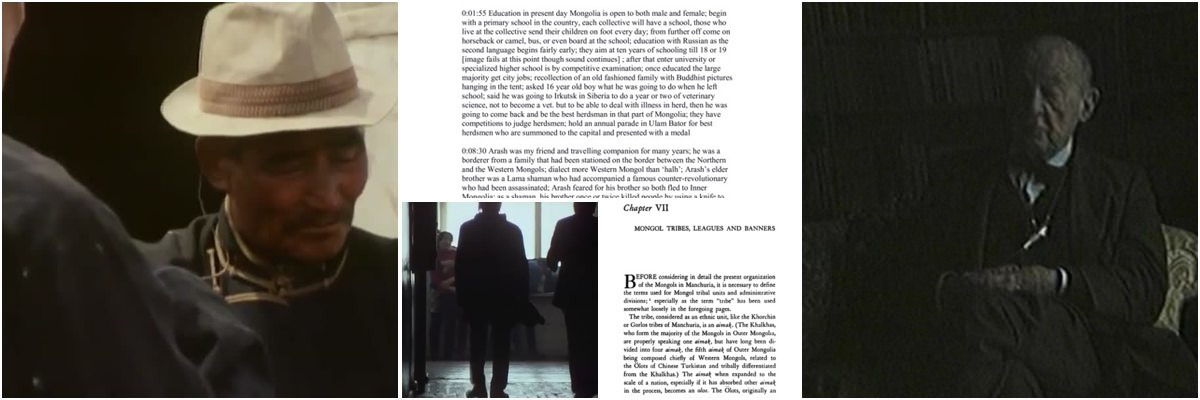
Metadata
identifier
5b95f4e9-7baa-4979-ab5b-4f5e9d660251
type
Collection
description
Interviews and publications reflecting the work of Owen Lattimore.
Owen Lattimore (July 29, 1900 – May 31, 1989) was an American author, educator, and influential scholar of China and Central Asia, especially Mongolia. Although he never earned a college degree, in the 1930s he was editor of Pacific Affairs, a journal published by the Institute of Pacific Relations, and then taught at Johns Hopkins University in Baltimore, Maryland, from 1938 to 1963. During World War II, he was an advisor to Chiang Kai-shek and the American government and contributed extensively to the public debate on American policy in Asia. From 1963 to 1970, Lattimore was the first Professor of Chinese Studies at the University of Leeds in England.
Lattimore’s “lifetime intellectual project”, notes one recent scholar, was to “develop a ‘scientific’ model of the way human societies form, evolve, grow, decline, mutate and interact with one another along ‘frontiers’.” He eclectically absorbed and often abandoned influential theories of his day that dealt with the great themes of history. These included the ecological determinism of Ellsworth Huntington; biological racism, though only to the extent of seeing characteristics which grew out of ecology; the economic geography and location theory; and some aspects of Marxist modes of production and stages of history, especially through the influence of Karl August Wittfogel. The most important and lasting influence, however, was Arnold J. Toynbee and his treatment of the great civilizations as organic wholes which were born, matured, grew old, and died. Lattimore’s most influential book, The Inner Asian Frontiers of China (1940), used these theories to explain the history of East Asia not as the history of China and its influence on its neighbors, but as the interaction between two types of civilizations, settled farming and pastoral, each of which had its role in changing the other. (Source: https://en.wikipedia.org/wiki/Owen_Lattimore)
Items
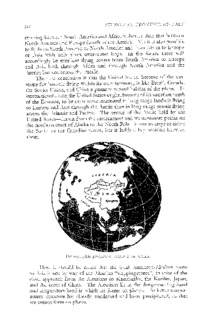
Studies In Frontier History: Collected Papers, 1928-1958
Lattimore, Owen
Collection of essays on the history of Inner Asia as a “frontier” region, addressing the relationship between nomadic and sedentary peoples.
subject: Inner Asia
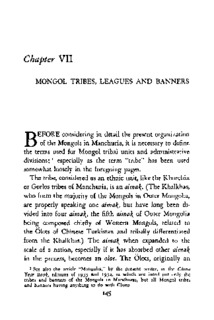
The Mongols of Manchuria
Lattimore, Owen
Full title: The Mongols of Manchuria: Their tribal divisions, geographical distribution, historical relations with Manchus and Chinese, and present political problems.
subject: Manchuria, colonization
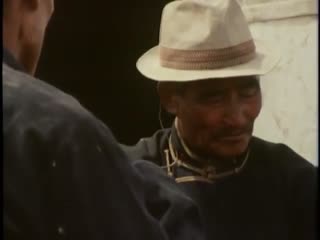
Mongolia I—On the Edge of the Gobi
Lattimore, Owen; Moser, Brian
Mongolia is a country the size of Western Europe with under 1.5 million people but over 23 million head of livestock.
subject: herding, social change, rural life

Mongolia II—The City on the Steppes
Lattimore, Owen; Moser, Brian
The second of two films on Mongolia made by Granada Television in 1974–75 looks at life in Ulan Bator, the capital of Mongolia and home of a quarter of the population.
subject: naadam, Tsagaan Sar, urban life

Owen Lattimore interviewed by Caroline Humphrey, 21st May 1983 – Part 1 (transcript)
Lattimore, Owen
Owen Lattimore describes Mongolia of the early 20th century and the aftermath of revolutions in that period.
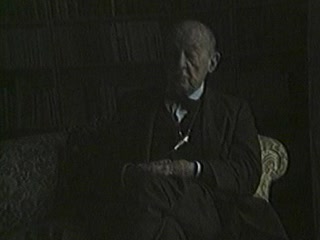
Owen Lattimore interviewed by Caroline Humphrey, 21st May 1983 – Part 1
Lattimore, Owen
Owen Lattimore describes Mongolia of the early 20th century and the aftermath of revolutions in that period.
subject: pastoral life, labour relations, gender, social stratification, Russians in Mongolia, Kazakhs in Mongolia
